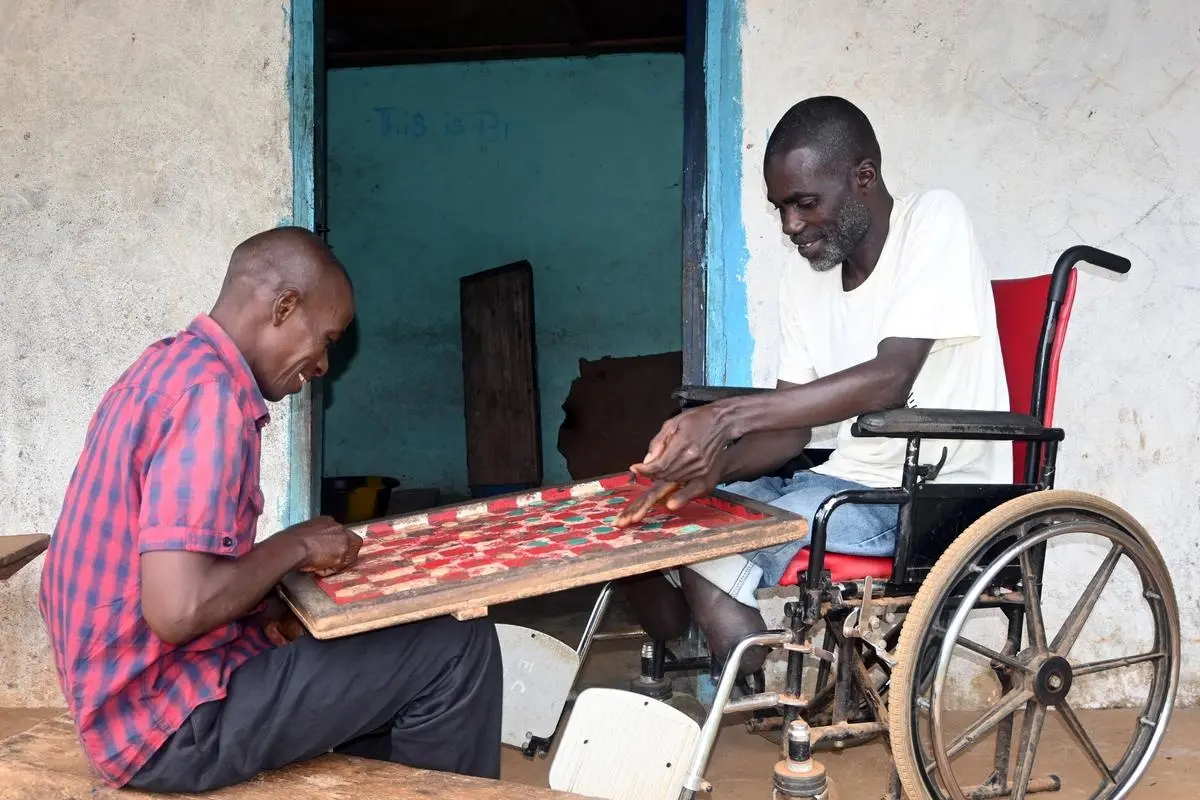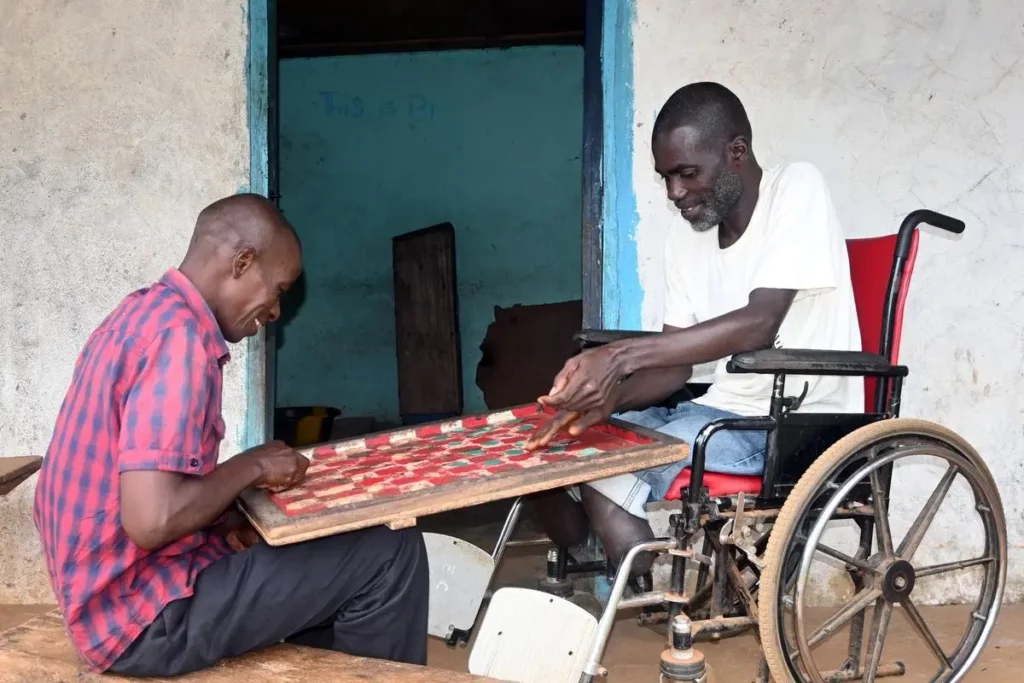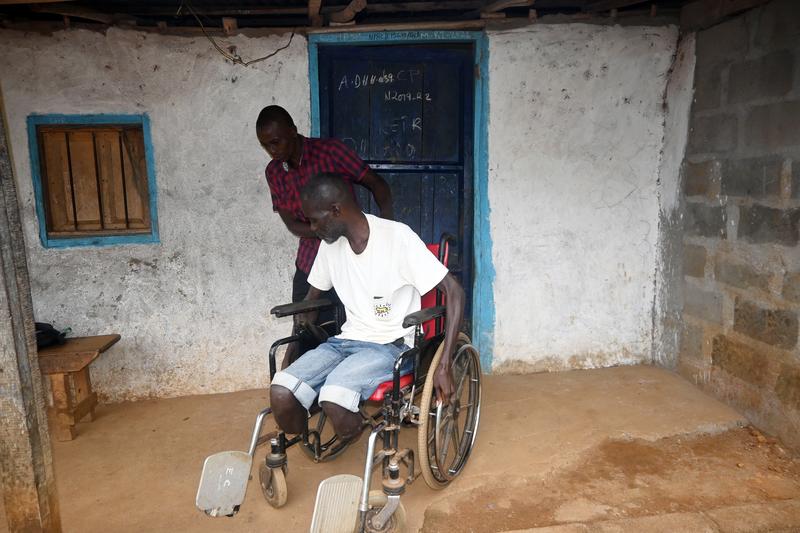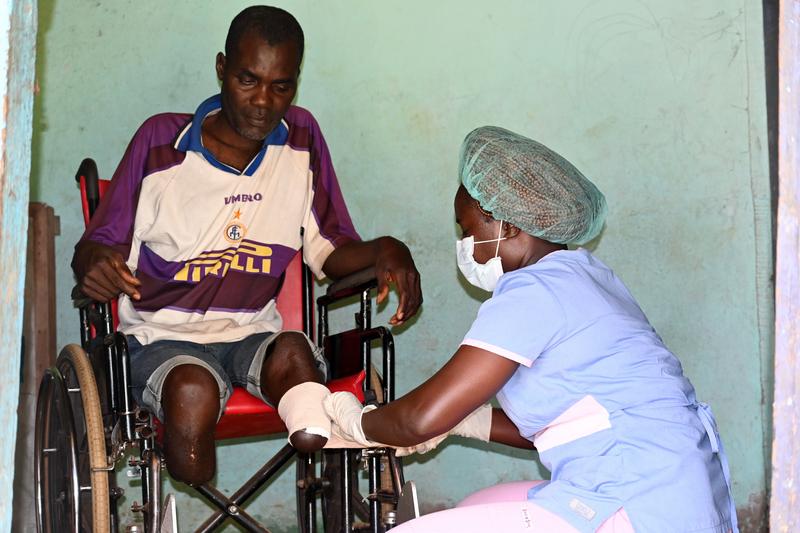Roommates With Chronic Diseases Support Each Other in Rural Liberia

Social support is a key component of strong health systems
Posted on January 25, 2023

Day after day Johnson Doe and Saturday Wesseh prayed for a cure. They hoped to ease the pain of their chronic conditions and live healthy lives outside of the hospital. Their friendship grew stronger as the days and weeks passed.
There was a natural connection between them, given their many similarities. They are both in their 50s, fathers, with the same diagnosis: a dangerous infection. Upon being discharged from Partners In Health (PIH)-supported J.J. Dossen Memorial Hospital, they got to know each other on a more personal level.
“[We] do almost everything together,” says Wesseh, who considers Doe to be his brother. From playing games and running errands to checking-in and giving advice, they’re inseparable.
Wesseh and Doe are roommates living in rural southeast Liberia. After they showed consistent signs of improvement, they were transferred from the hospital to temporary PIH-supported housing. Wesseh moved in first, then to his surprise, Doe joined about a year later.
“When I saw him I was happy for him to come and join me,” says Wesseh.
Healing Together
Doe and Wesseh understand each other. They both went through the challenges of buruli ulcer, a tissue-destroying infection that affects various body parts. For Doe, his foot and for Wesseh, his leg. Similar to a third-degree burn, buruli ulcer eats through skin, nerves, and blood vessels, making its way to bone. For many people, movement is restricted and only regained through physical therapy. Doe requires a wheelchair because of the condition. It is unknown how the disease spreads and there is no prevention, according to the World Health Organization, but there are treatment options.

Both of their illnesses were originally attributed to witchcraft—a common belief among families in this region. In fact, Doe himself believed the sharp pains in his right foot were the result of witchcraft hunting by members of his community. And Wesseh’s wife and neighbours believed his unbearable pain and discomfort were due to witchcraft. Afterall, the medicines from local clinics weren’t helping and bumps began to appear on Wesseh’s leg, so what else could it be, they thought.
Eventually, both men were referred to J.J. Dossen Memorial Hospital. Doe was referred by his younger brother after he wasn’t satisfied with the care at another facility. And Wesseh was referred to the hospital during a local PIH community outreach event. They were given buruli ulcer diagnoses and received standard medical treatment, including antibiotics.
Although they are now out of the hospital, they still receive care. A nurse visits the men daily to care for their wounds; and a community health worker visits regularly to provide social assistance, including food, supplements, and transportation money for family members to visit them, among other things. And together, the men provide each other with emotional, social, and practical support.
“Sometimes when he doesn’t have soap, I can go and buy it for him,” says Wesseh. “And each time he needs anything, I can help.”

Treating the Whole Patient
At PIH sites around the world, care is focused on treating the whole patient, not just their illness. Quality care includes the five S’s: staff, stuff, space, systems, and social support. The fifth is just as important as the first four.
Although social support comes in many different forms, it generally involves basic necessities including food, transportation, and housing. Safe, PIH-supported housing is provided at no cost, which is essential considering the men are currently unable to work due to their conditions. Previously, Doe worked in a gold mine and Wesseh was a sheriff in the judiciary court.
The men are eager to fully heal and reunite with family and friends. Until that day comes, they’re glad to have each other.
“What I will forever remember and be grateful about is the social assistance that PIH is giving us,” says Wesseh.
Originally published on pih.org



